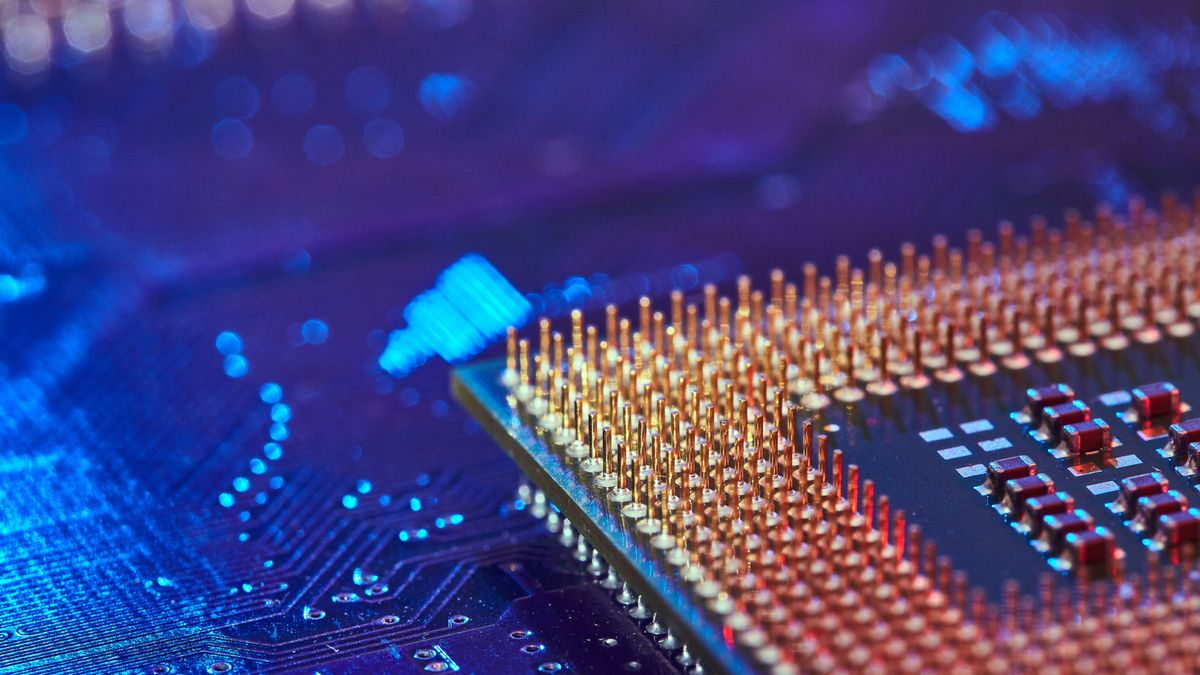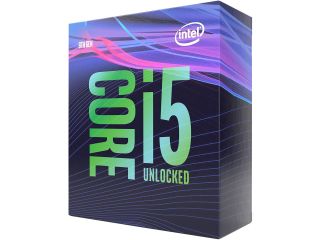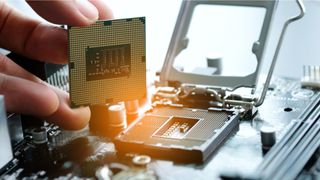Intel Core i5-10600K vs Intel Core i5-9600K: which mainstream CPU is best?
Pitting Intel's 10th gen vs 9th gen

Intel has now officially launched its 10th generation Comet Lake-S processors, and while the series encompasses high-end enthusiast CPUs with its i9 and i7 chips, and budget builds with i3, it's the Intel Core i5-10600K that's likely to be its most popular processor, due to its mainstream appeal that mixes performance and affordablility.
But, how much of an upgrade is the Intel Core i5-10600K versus the Intel Core i5-9600K that it replaces? In this article we'll be pitting the two mainstream CPUs against each other.
Now, before we begin, we'd like to point out that as the Intel Core i5-10600K has just been announced, we've not had time to test it ourselves. So, this article is comparing the specs, price and features of the processor that Intel has given us.
Once we've actually tested the Intel Core i5-10600K, we'll update this artcile with our findings.
Price and availability
The Intel Core i5-10600K will launch with a price of $262 (around £230, AU$400), which plants it firmly in the mid-range market for processors.
That's pretty much exactly the same price as the Intel Core i5-9600K launched at. However now that the 9600K is over a year old, prices have dropped, and you can now get one for around $200/£200/AU$300, making it a much more affordable choice.
With the launch of the 10600K and other 10th generation desktop processors from Intel, we will probably see the price of the 9600K drop more.
Get daily insight, inspiration and deals in your inbox
Sign up for breaking news, reviews, opinion, top tech deals, and more.
So, while we applaud Intel for launching the new generation Core i5 processor at the same price as the last generation launched at (and both a fair bit cheaper than what the 8th generation launched at), the fact that the Core i5-10600K is aimed at a mainstream audience - which are particularly budget-concious - then the new chip needs to prove that its the best choice when it comes to both value and performance.
Intel also launched a cheaper Core i5-10600KF for $237 (around £190, AU$360), which is the same chip but without integrated graphics. If you're going to be using a discrete graphics card, this could be a more affordable option.

Specifications
The Intel Core i5-10600K is a six-core processor with 12 threads and a base clock speed of up to 4.1GHz. It uses Intel Turbo Boost Technology 2.0 to increase the maximum single core turbo frequency to up to 4.8GHz.
It's unlocked, so can be overclocked, and has a Thermal Design Power (TDP) of 125W.
It also supports up to 40 PCIe lanes and two channels of DDR4-2666 RAM. Integrated graphics is supplied by an Intel UHD 630 GPU.
Meanwhile, the Core i5-9600K is a six-core processor with six threads and a base speed of 3.7GHz, and a boost speed on a single core of 4.6GHz.
Like the new CPU, it's unlocked, and its TDP is 95W - quite a bit lower than the 10600K's TDP. It supports 16 PCIe lanes and dual-channel DDR4-2666 RAM. The integrated graphics are again supplied by an Intel UHD 630 GPU.
Going by specs alone, then, the Intel Core i5-10600K looks to be a decent step up. The fact that the new i5 now uses multi-threading tech (known as Hyper Threading in Intel speak), means that the new CPU should be a much better performer when it comes to multi-tasking, and when performing tasks or using apps that are designed to take advantage of multi-threading.
However, using the same integrated graphics tech means you won't see much of an improvement when it comes to gaming using the onboard graphics. However, for pretty much all gamers, you'll be using a discrete standalone graphics card anyway.
Meanwhile, the leap in TDP from 95W to 125W is a biggie. That means the Intel Core i5-10600K needs more power to run. This has implications when it comes to running your PC, as it can have an impact on your energy bills, and means you need to make sure your Power Supply Unit (PSU) is up to the task.
A CPU that uses more power produces more heat as well, so you'll need a good CPU cooler, and it could mean it causes the fans in your PC to kick in more often, resulting in a noisier experience.
Is this trade off worth it? Intel seems to think so.

Performance
As we mentioned earlier, we've not had a chance to test and benchmark the Intel Core i5-10600K yet, so we're going off what Intel has told us.
According to Intel, its 10th generation desktop processors will provide up to 33% more frames per second (FPS) in Mount and Blade II Bannerlord, compared to the previous generation.
It can also offer 10% more FPS in PUBG and 13% more FPS in Monster Hunter World.
Intel also claims 18% faster 4K video editing over the previous gen.
Now, these benchmarks are using the i9 and i7 processors from each generation for the comparisons, so we can't reliably discern if the same performance difference will be seen in the i5 processors. There's also the fact that Intel ran these tests itself, so it has more control over the results, which it can use to its advantage.
So, we'd have to wait for our own independent testing of both Core i5 CPUs to really compare the performance, but if these results are in the same ballpark, it means there is a step up in performance with the new Intel Core i5-10600K, but it's not one that will make a huge difference in many games.
Intel Core i5-10600K vs Intel Core i5-9600K: is it worth the upgrade?
So, is the Intel Core i5-10600K worth an upgrade if you own an Intel Core i5-9600K? The short answer is no - but then, the 10600K would have had to be something really special for that.
This is because the 9600K is still a fine processor, and the performance leap, though present, won't be enough to justify buying a new processor. Plus, it's not just the new CPU you need to buy – the Intel Core i5-10600K uses the new Z490 chipset. This means you'll need to buy a whole new motherboard as well if you upgrade.
That's a considerable extra expense to factor in – and you've also got to consider the effort and time it takes to swap over motherboards in a PC. The Intel Core i5-10600K won't be worth it.
However, no one – including Intel – is really expecting Intel Core i5-9600K owners to make the leap. Instead, Intel is hoping people on older generations, like the Intel Core i5-7600K will upgrade. People running that chip will see a more noticeable performance boost.
However, would they be better off switching completely to rival AMD's more affordable Ryzen 5 3600? If price is more important than pure performance, then Intel will have a fight on its hands to persuade you to stick with its CPUs.
- These are the best Intel CPUs of 2020

Matt is TechRadar's Managing Editor for Core Tech, looking after computing and mobile technology. Having written for a number of publications such as PC Plus, PC Format, T3 and Linux Format, there's no aspect of technology that Matt isn't passionate about, especially computing and PC gaming. He’s personally reviewed and used most of the laptops in our best laptops guide - and since joining TechRadar in 2014, he's reviewed over 250 laptops and computing accessories personally.
Most Popular

